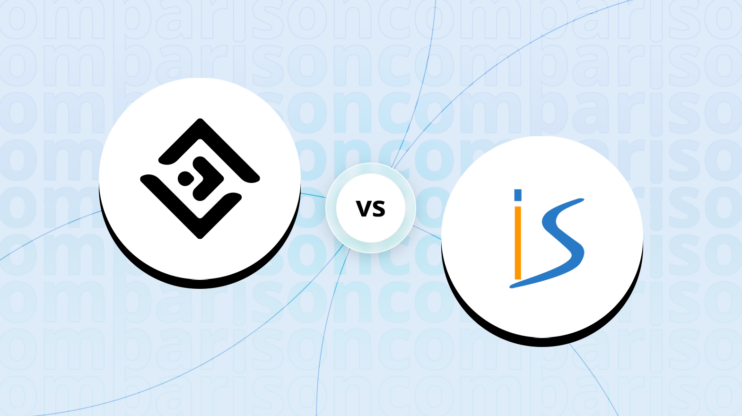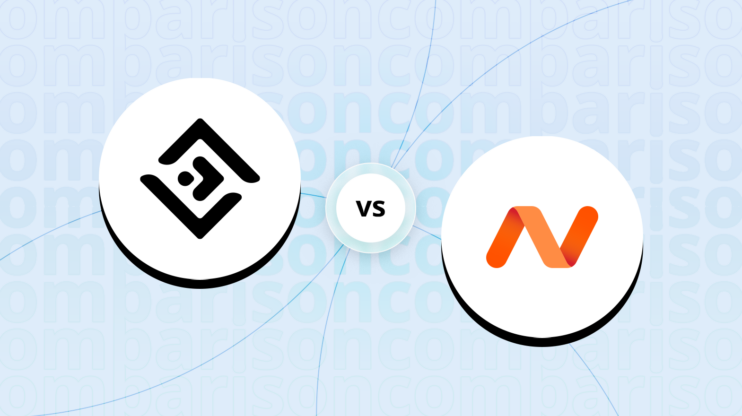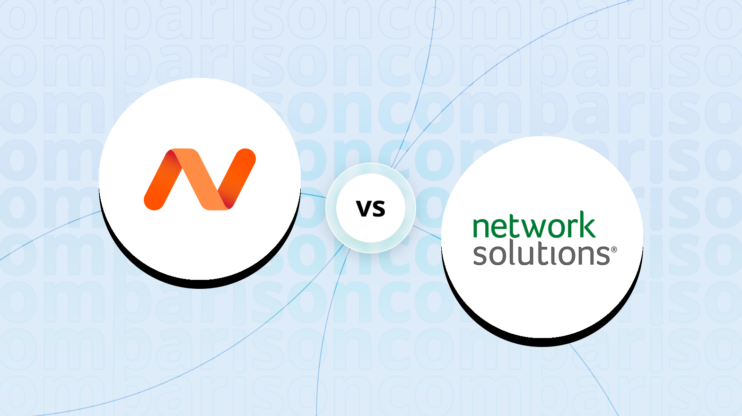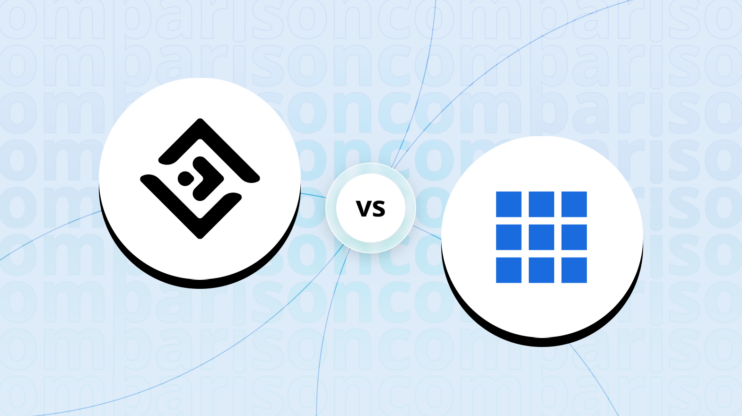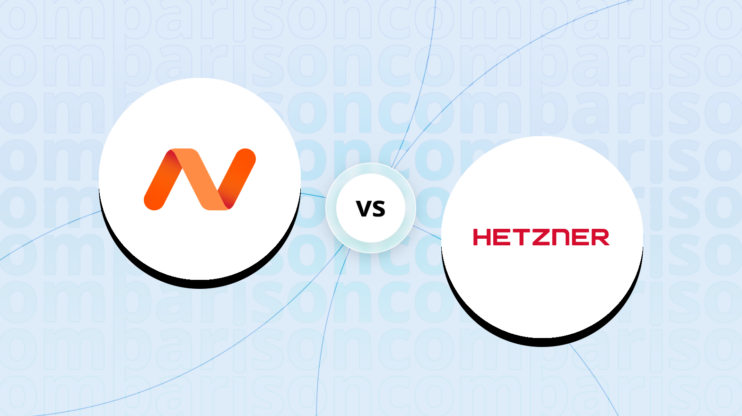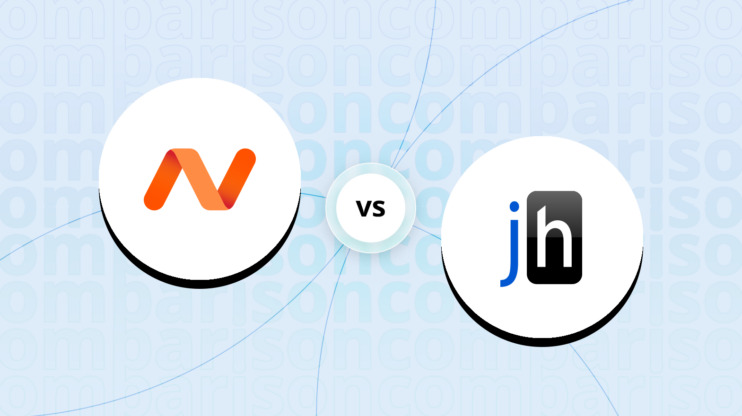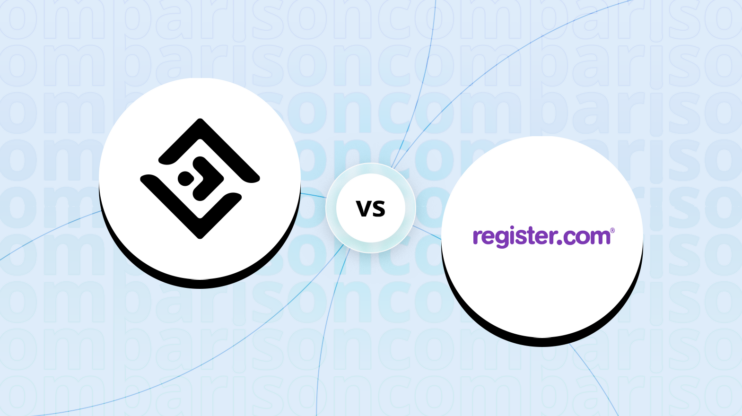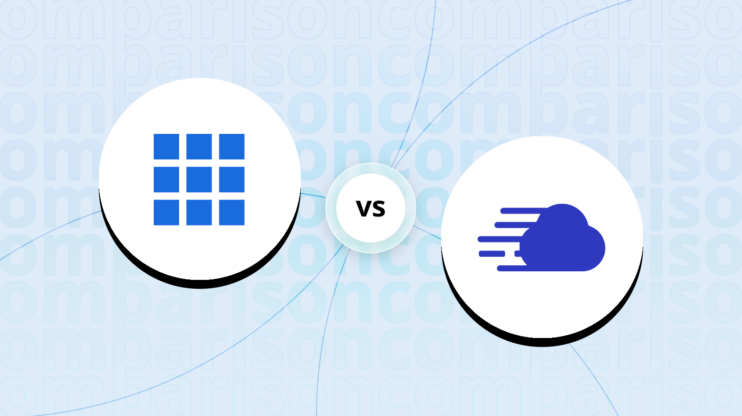Final verdict
Looking over InterServer vs. Namecheap, it’s clear why both hosts are so popular. They have both hosted millions of
websites that run on WordPress for decades, building up a loyal customer base.
-
InterServer (Overall grade: 8.1)
provides robust and reliable service, making it a preferred choice for users who prioritize consistency. With features like guaranteed 99.99% uptime, advanced security measures through InterShield, and a versatile user management system using industry-standard control panels (cPanel, Plesk, and DirectAdmin), InterServer stands out for its stability and security. Their unlimited storage and transfer features, coupled with SSD Caching Servers and free migration services, make it a strong contender for businesses expecting high traffic and needing scalable solutions. Additionally, the availability of 24/7 phone support provides an extra layer of service that ensures timely and effective problem resolution, which is a significant advantage over competitors.
Namecheap (Overall grade: 7.2)
offers a comprehensive range of features suitable for both beginners and advanced users, particularly excelling in WordPress and ecommerce hosting. With a 100% uptime guarantee for specific plans and solid performance metrics, Namecheap ensures reliability. The inclusion of free SSL for the first year, a user-friendly EasyWP dashboard for WordPress management, and a global CDN significantly enhance its ease of use and speed. Although lacking phone support, Namecheap compensates with extensive self-help resources and 24/7 live chat. Its competitive pricing, combined with additional features like a website builder, makes it ideal for small to medium businesses and personal projects. However, shared hosting performance and server response times could be improved to elevate user experience further.
 Overall grade:7.2 |
 Overall grade:8.1 |
|
|---|---|---|
| Uptime and Availability | 8.0 | 8.7 |
| Hosting Performance | 8.2 | 8.2 |
| Hosting Security | 8.5 | 8.3 |
| Price | 8.7 | 8.1 |
| Hosting Features | 7.5 | 6.2 |
| Ease Of Setup | 8.8 | 8.7 |
| User Management | 0.0 | 7.4 |
| Customer Support | 8.0 | 9.0 |
| User feedback | 4.3/5 | 4/5 |
Hosting types offered
Both platforms provide a variety of hosting types, each designed to meet the different needs of users.
 |
 |
|
|---|---|---|
| Shared hosting | ||
| Cloud hosting | ||
| WordPress hosting | ||
| Ecommerce hosting | ||
| VPS hosting | ||
| Dedicated hosting |
Although both offer a variety of hosting plans tailored to different needs, in
certain cases, one platform may prove to be more suitable.
Detailed comparison
Uptime and availability
Evaluates the average uptime statistics, uptime guarantee and overall availability of the hosting
provider
Score Components:
- Uptime percentage (30%): evaluates the uptime statistics in given period of time
- Uptime guarantee (20%): Assesses if the platform offers an uptime guarantee and
whether the actual uptime matches the promised guarantee. - General performance (25%): Evaluates how fast is the average response time and overall
it’s stability. - Responsiveness (10%): Adaptability to different devices and screen sizes.
- Availability (25%): Reflects the total downtime and number of outages.
 8.0
8.0
 8.7
8.7
🏆 Winner
InterServer: Providing exceptional uptime and advanced performance features.
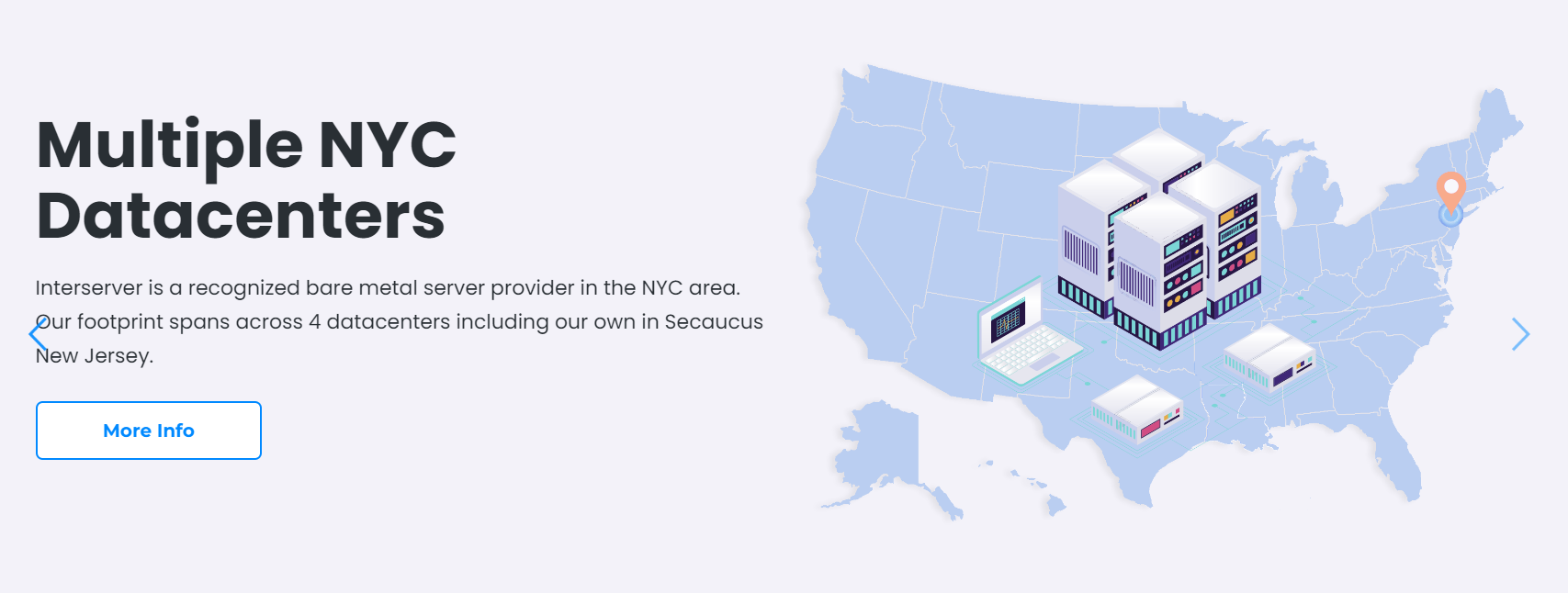
InterServer guarantees 99.9% uptime and has achieved an impressive 99.99% uptime in long-term monitoring. Features such as route optimization and Cloudflare CDN contribute to its high availability. With a server response time of 662ms and proactive server management, InterServer stands out for its reliability and commitment to maintaining performance.

Namecheap offers a strong uptime guarantee, particularly for shared, business, and dedicated server accounts with a promise of 100% uptime. Their recent average uptime performance stands at 99.96%, which is commendable. Namecheap’s response time is acceptable, though below market averages, with various monitoring tools deployed to ensure performance.
Hosting performance
Score Components:
- Hosting speed (30%): This includes SSD quality, Load times, PageSpeed score ranges,
additional information on website speed, built-in plugins for performance enhancement, available caching
methods, and CPU/RAM options - CDN (20%): Considers whether CDN is available or not, whether it’s free or paid, and
the quality of the CDN service - Available data centers (30%): Evaluates the number of data centers and their locations
globally. - Scalibility (20%): Looks at whether elastic scaling is available, the process required
to scale (manual upgrade vs. automatic scaling), the presence of dedicated servers, and the costs
associated with scaling.
 8.2
8.2
 8.2
8.2
🏆 Winner Namecheap: Balanced performance with solid features across different hosting types.
Both Namecheap and InterServer offer impressive hosting services, but Namecheap stands out due to its comprehensive range of features and consistent performance across various hosting plans. When it comes to general performance, Namecheap utilizes SSD storage across all plans with specific limits on space, ensuring fast data retrieval. Page load times are solid, especially with their WordPress hosting which boasts a fully loaded time of 0.7 seconds. Namecheap offers unmetered bandwidth on most plans and a global CDN for free on its WordPress hosting, further boosting speed and reliability. Data centers are spread across the US, UK, and EU, covering key regions efficiently.
Website Speed
Website speed is a critical factor for both providers. Namecheap’s WordPress hosting offers a time to first byte of 192 milliseconds, showing quick initial server responses. InterServer provides speed optimization through its 10GB Cisco Network and SSD Caching Servers, which accelerates load times effectively. While both guarantee 99.9% uptime, the inclusion of a free CDN in Namecheap’s EasyWP plans ensures faster content delivery across geographic locations, giving it a slight edge in website speed.
Scalability
For scalability, Namecheap and InterServer offer distinct benefits. Namecheap’s VPS hosting allows for significant growth with options ranging from 2 to 8 CPU cores and substantial SSD storage, but exact pricing for scalability isn’t specified. InterServer supports easy scaling to VPS or dedicated servers with no downtime during the upgrade process, and their flexible hosting platform is designed to seamlessly accommodate growing website needs. Both provide effective scaling solutions, but the specific cost advantages of scaling with InterServer remain unknown.
Hosting security
and regulatory requirements
Score Components:
- Technical security measures (40%): This includes encryption, firewalls, DDoS
protection, secure configurations, server monitoring, access control and availability of security addons
(e.g Sitelock security). - Operational security measures (30%): Encompasses data privacy, backups and data
redundancy. - Compliance and certifications (20%): Adherence to legal and regulatory requirements
(e.g., GDPR, HIPAA) and possession of certifications (e.g., ISO 27001, SOC 2). - Business and reliability (10%): Factors in the provider’s reputation, uptime
guarantees, and customer support.
 8.5
8.5
 8.3
8.3
🏆 Winner Namecheap: Offers a robust set of security features and extensive regulatory compliance.
Both Namecheap and InterServer, have notable differences in their approaches to technical and operational
security, as well as in their compliance with regulations.
Technical security measures:
Namecheap provides a comprehensive array of SSL certificates, including Domain Validation (DV), Organization Validation (OV), and Extended Validation (EV). InterServer also offers free SSL certificates but lacks the variety. Namecheap’s PHP support ranges from PHP 5.X to PHP 8.X, while InterServer supports up to PHP 8.3. InterServer features unique offerings like InterShield Security, which includes machine learning firewall and in-house malware database, whereas Namecheap utilizes eAccelerator and xCache for optimizing the performance of PHP scripts. Both providers offer two-factor authentication (2FA).
Operational security measures:
Namecheap incorporates multi-layer email protection including Jellyfish Spam Protection and BoxTrapper, while InterServer uses automatic email encryption and brute-force attack prevention features. InterServer’s data centers offer strong physical security, with 24/7 surveillance and strict access controls. InterServer also provides self-healing hardware technology that redirects issues automatically. Namecheap does not specify such measures but includes IP Deny Manager and Leech Protect to prevent unauthorized access. Both companies offer round-the-clock customer support and extensive documentation.
Compliance and certifications:
Namecheap is GDPR compliant and provides extensive rights under GDPR, such as Right of Access, Right to be Forgotten, and Right to Object. PCI compliance is not explicitly mentioned for Namecheap. InterServer emphasizes privacy and security but does not specify details on GDPR or PCI compliance. No information is available about HIPAA compliance for either provider.
 |
 |
|
|---|---|---|
SSL certificate |
Multiple types available |
Free SSL certificates |
Additional security features |
eAccelerator, xCache |
InterShield Security |
PHP versions |
PHP 5.X to PHP 8.X |
Up to PHP 8.3 |
GDPR compliance |
Yes |
Not specified |
HIPAA compliance |
Not specified |
Not specified |
PCI compliance |
Not specified |
Not specified |
Hosting features
Score Components:
- Domains (20%): Assesses the availability of a free domain, domain purchase options, and
pricing - Email (15%): Considers if the provider offers full email hosting, or is reselling
third-party service, and if the email is only transactional or not - Website builder (15%): Checks if website builder is available, and it’s user
friendliness and overall the level of customization allowed. - Staging environment (20%): Determines if a staging environment is available, allowing
for testing changes before going live. - FTP & SFTP accounts (10%): Evaluates if and how easily users can access FTP and
SFTP accounts - Git and SSH access (20%): Assess whether Git is integrated into the hosting service and
if SSH access is provided
 7.5
7.5
 6.2
6.2
🏆 Winner
Namecheap: Namecheap offers a well-rounded hosting package with an array of features that cater to both beginners and more advanced users. It stands out for its comprehensive set of tools, including a website builder that enables easy setup and complex customization without additional costs.
Both Namecheap and InterServer provide robust hosting solutions, but there are notable differences that may influence your choice. Namecheap’s shared hosting plans come with a website builder, making it user-friendly for those new to hosting or website creation. Namecheap offers free SSL certificates for the first year, and some plans include automatic backups and cloud storage, ensuring data security and ease of recovery. With a 30-day money-back guarantee, Namecheap gives users a risk-free introduction to its services. InterServer, on the other hand, provides unlimited storage space, data transfer, and FTP accounts, suitable for users who anticipate high data needs. It also uses SSD caching servers for speed optimization, though it lacks explicit mention of SSH access. Both providers offer cloud apps and ultra-fast servers, but Namecheap’s specific user-friendly and additional free services give it an edge.
Additionally, Namecheap offers personalized email services with high levels of spam protection and an array of customizable options. Its plans include unlimited email mailboxes for higher tiers, which can be beneficial for businesses needing extensive email management. InterServer, while providing unlimited data features and weekly backups, does not highlight these email-centric features as prominently. Depending on the specific needs — whether it’s creating a user-friendly website with dedicated support or leveraging unlimited data and backup capabilities — each provider has its charm.
 |
 |
|
|---|---|---|
Free domain |
No |
Yes |
Free SSL |
Yes, for the first year |
Yes |
Email hosting |
Yes |
Not explicitly mentioned |
Website builder |
Yes |
No |
Staging environment |
Not explicitly mentioned |
Not explicitly mentioned |
FTP & SFTP accounts |
Yes |
Yes |
Git and SSH access |
No |
Yes |
Free backup |
Yes |
Yes |
Money back guarantee |
Yes, 30 days |
Not explicitly mentioned |
a location.
As a result in rare cases the features mentioned here can differ from the ones you see on their websites.
Both providers support a range of users from beginners to experts with user-friendly website builders and WordPress staging areas. However, in terms of developer tools, both Namecheap and InterServer offer robust options including SSH access, support for multiple programming languages, and Git for version control, thus appealing to developers looking for advanced capabilities.
Email services:
Email services at Namecheap excel with its extensive email features, offering unlimited email hosting on higher-tier plans, robust anti-spam measures, and various email protocols like SMTP, POP3, and IMAP. Users can set up their own email campaigns efficiently with tools like mailing lists and autoresponders. InterServer, while offering unlimited FTP accounts and weekly backups, does not emphasize email hosting as part of its core services. For those valuing email capabilities as part of their hosting package, Namecheap provides more detailed and extensive options.
Price
Score Components:
- Plan value (40%): What each pricing tier offers.
- Transparency and clarity (30%): Clearness of pricing structures.
- Flexibility of plans (20%): Range of options to suit different budgets.
- Hidden costs (10%): Additional expenses not included in the plan.
 8.7
8.7
 8.1
8.1
🏆 Winner Namecheap: Affordable pricing and a comprehensive range of hosting plans for various needs.
Evaluating the pricing of plans among various hosting providers can be complex due to their differing pricing and renewal strategies. Additionally, certain plans require annual commitments, which adds to the difficulty of making comparisons. The prices listed are based on monthly commitments; plans requiring annual commitments are indicated. Additionally, although some providers offer identical plans for WordPress and shared hosting, we have created separate tables for each to enhance clarity.
When comparing the pricing plans of Namecheap and InterServer, distinct differences and similarities can be noted. Namecheap provides a variety of hosting options, including shared, reseller, dedicated, and managed WordPress hosting plans, with introductory pricing that is typically lower than InterServer’s but higher renewal costs. InterServer, on the other hand, offers unlimited storage and transfer across most plans and has fixed monthly pricing, which might appeal to those who prefer to avoid fluctuating costs. Both providers include SSL certificates and website migration services at no additional charge, but Namecheap offers more features like free domain registration and Supersonic CDN.
 |
 |
|---|---|
|
EasyWP Starter $6.88
1 website, 10GB SSD storage, 50k visitors/month, free CDN, SSL, 3X faster, easy backups. Value for price:8.5
|
1 Core $6.00
Unlimited websites, 30GB SSD storage, 2TB transfer, high performance, flexible software, free migration. Value for price:7.5
|
|
EasyWP Turbo $12.88
1 website, 50GB SSD storage, 200k visitors/month, free CDN, SSL, 1.5x CPU & RAM, 3X faster, easy backups. Value for price:8.7
|
2 Cores $12.00
Unlimited websites, 60GB SSD storage, 4TB transfer, high performance, flexible software, free migration. Value for price:7.8
|
|
EasyWP Supersonic $19.88
1 website, 100GB SSD storage, 500k visitors/month, free CDN, SSL, 2x CPU & RAM, 99.99% uptime, 3X faster, easy backups. Value for price:9.0
|
3 Cores $18.00
Unlimited websites, 90GB SSD storage, 6TB transfer, high performance, flexible software, free migration. Value for price:8.0
|
 |
 |
|---|---|
|
Stellar $4.48
3 websites, 20GB SSD storage, 30 mailboxes, free domain (1st year), SSL, Supersonic CDN. Value for price:8.2
|
Standard Web Hosting $2.50
Unlimited websites, unlimited storage & transfer, SSL, 50% server capacity, free migration, email. Value for price:8.0
|
|
Stellar Plus $6.48
Unlimited websites, unmetered SSD, unlimited mailboxes, auto backups, free domain (1st year), SSL, Supersonic CDN. Value for price:8.5
|
N/A |
|
Stellar Business $9.48
Unlimited websites, 50GB SSD storage, unlimited mailboxes, auto backups, free domain (1st year), SSL, Supersonic CDN. Value for price:8.8
|
N/A |
 |
 |
|---|---|
|
EasyWP Starter $6.88
1 website, 10GB SSD storage, 50k visitors/month, free CDN, SSL, 3X faster, easy backups. Value for price:8.5
|
VPS Special $6.00
1 server, 30GB SSD, 2GB RAM, instant activation, cPanel/Direct Admin, 99.9% uptime. Value for price:8.0
|
| N/A |
Cloud VPS $6.00
1 server, 30GB SSD storage, 2GB RAM, multiple OS, instant provisioning, 99.9% uptime. Value for price:8.1
|
Enterprise plans
When it comes to enterprise hosting, Namecheap offers advanced dedicated server plans with customizable configurations to meet high-traffic and specialized needs such as content streaming, big data, and gaming servers. Prices for advanced servers vary based on configuration. Namecheap also includes full root access and various OS options. InterServer’s enterprise solutions include a range of VPS hosting plans, with flexible core and RAM options, ensuring high performance and easy scalability. With prices starting at $6.00/month, InterServer provides affordable yet powerful options for enterprises needing versatile hosting solutions.
Ease of setup
platform.
Score Components:
- Site migration (25%): Assesses whether the provider offers tools for site migration,
either automated or manual, and whether these services are free or require a fee. - Admin panel usability (35%): Evaluates the type of admin panel provided, such as the
standard cPanel or a custom solution, focusing on its accessibility and user-friendliness for both
technical and non-technical users. - Setup features (20%): Examines the availability and ease of use of various setup
features, including FTP accounts, file managers, email account setup, PHPMyAdmin, and easy CDN
configuration. - Help center quality (20%): Measures the quality and accessibility of the provider’s
help center resources, including articles and tutorials.
 8.8
8.8
 8.7
8.7
🏆 Winner: Namecheap: User-friendly setup and extensive support.
Namecheap offers users a customized dashboard called EasyWP, designed explicitly for managing WordPress websites without traditional cPanel. This dashboard provides all essential tools within easy reach, making it simple for both technical and non-technical users to manage their websites. On the other hand, standard plans still include cPanel, offering features like one-click installations for over 200 scripts.
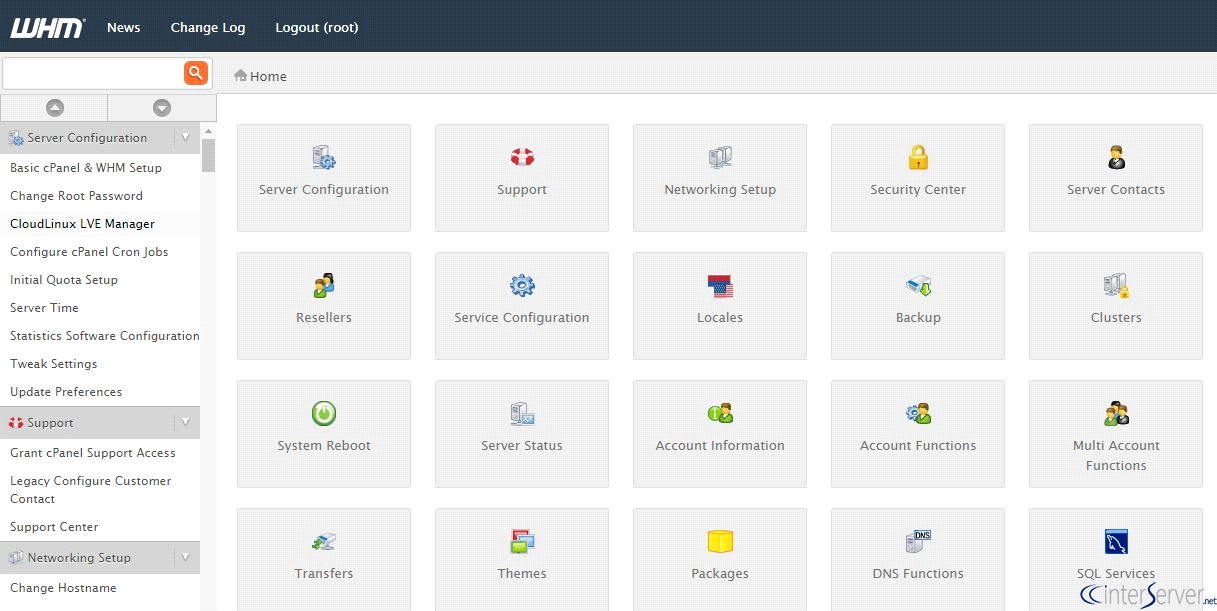
InterServer relies on standard control panels like cPanel and DirectAdmin, known for their usability. With 461 scripts available for one-click installation, InterServer caters to users who prefer more traditional admin panels. This approach suits both experienced administrators and beginners who find cPanel straightforward and intuitive.
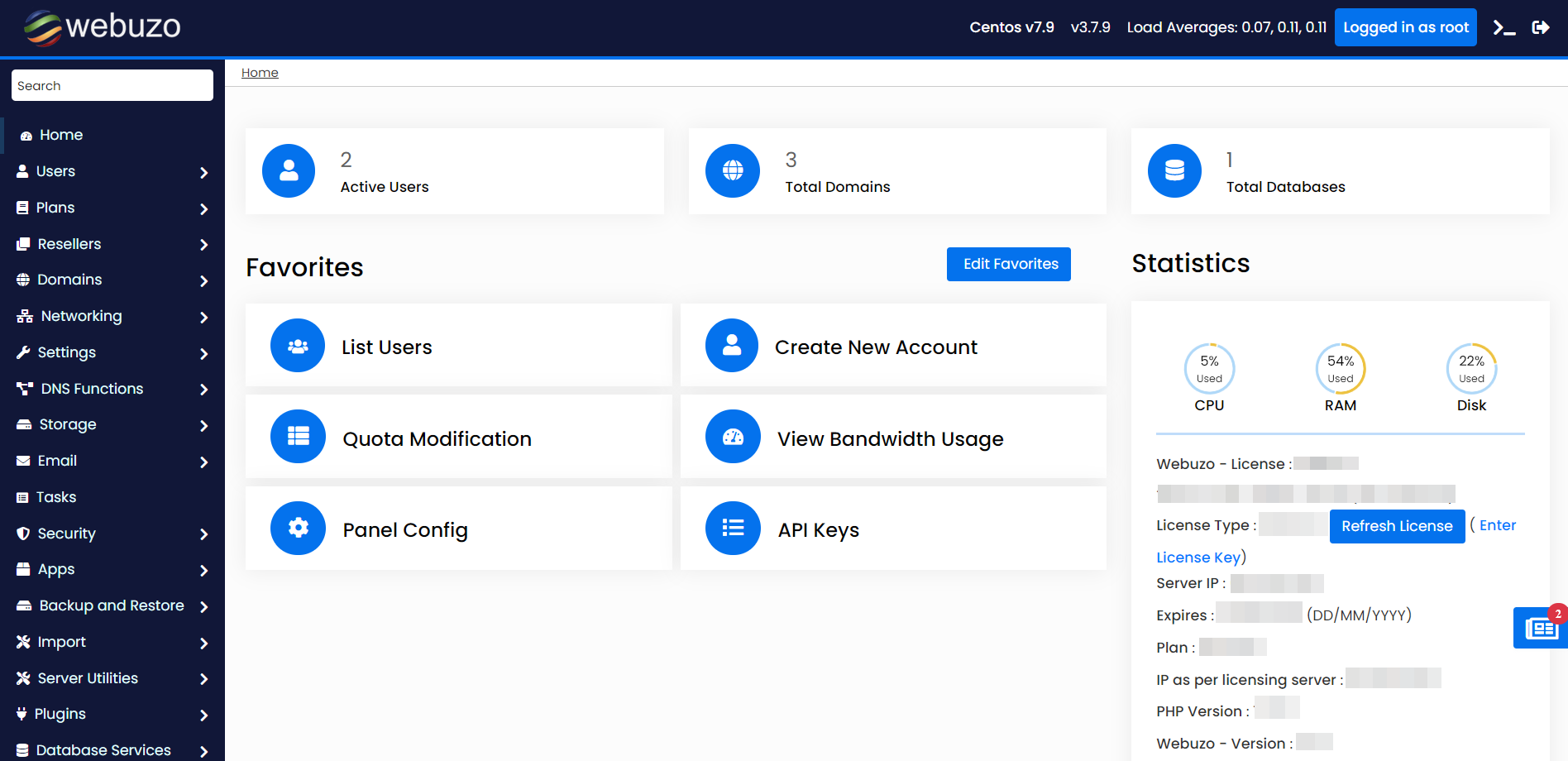
Both hosting providers offer free migration services, ensuring a smooth transition from your current host. Namecheap performs migration using the All-in-One WP Migration plugin, accommodating websites from various hosts like GoDaddy and Bluehost. Similarly, InterServer provides free migration for standard shared hosting accounts, but requires a cPanel backup.
Namecheap provides accessible support through a 24/7 live chat, a support ticket system, and a comprehensive knowledge base filled with setup guides, troubleshooting steps, and FAQs. InterServer also offers 24/7 support via phone, live chat, and a ticket system, complemented by helpful articles and training tools. Both hostings maintain easily navigable libraries of resources for all types of users.
User management
accessibility.
Score Components:
- Role customization (40%): Flexibility in creating and defining user roles and
permissions. - Ease of management (30%): User interface and tools for managing users.
- Access control (20%): Effectiveness of access control measures for different user
levels. - Scalability (10%): Ability to manage a growing number of users efficiently.
 0.0
0.0
 7.4
7.4
🏆 Winner: InterServer: A versatile hosting provider with comprehensive user management capabilities.
User management is an essential feature for hosting providers, and both Namecheap and InterServer offer unique capabilities in this area. However, InterServer provides more detailed and versatile options for managing user roles and permissions. Through cPanel, Plesk, and DirectAdmin, InterServer allows for detailed user role creation and permission settings. While the specific details about Namecheap’s user management are unavailable, the diversity of control panels used by InterServer ensures a flexible approach to user management that’s likely more robust than what Namecheap can offer.
InterServer excels in user interfaces and tools provided for managing users, thanks to its use of industry-standard control panels like cPanel, Plesk, and DirectAdmin. These tools are known for their user-friendly interfaces and wide range of functionalities, including dedicated file managers and client management systems for resellers. Although there’s no detailed information on Namecheap’s user interfaces, it’s clear that InterServer’s use of standard control panels makes it a strong contender in terms of ease of management.
Effective access control is another crucial aspect, and InterServer seems to have this well-covered. Its control panels are designed to manage growing numbers of users efficiently, with features like dedicated file managers and private email hosting that include robust access control measures. This makes InterServer particularly adept at handling user scaling, a feature that’s essential for businesses looking to expand. In contrast, the lack of specific details about Namecheap’s access control measures makes it harder to gauge its effectiveness in this area.
InterServer user roles table:
| Role | Description | Access highlights |
|---|---|---|
| Administrator | Manages all aspects of the hosting account. | Full access to cPanel, Plesk, or DirectAdmin; can create and manage all user accounts and set permissions. |
| Reseller | Manages client accounts and resources. | Access to DirectAdmin; can create and manage hosting accounts for clients and allocate resources. |
| Email User | Manages individual email accounts. | Access to email settings; can set up forwarding, aliases, and group lists. |
| File Manager User | Manages files and directories. | Access to the dedicated File Manager in cPanel; can upload, download, and edit files and directories. |
Customer support
hosting provider.
Score Components:
- Support communication channels (30%): Measures the variety of customer support types
provided (live chat, chatbot, email, phone, etc.) - Availability (20%): Assesses the availability hours for each channel, including 24/7
support options. - Technical support quality (30%): Assesses whether the provider offers comprehensive
technical support, including hardware upgrades (e.g., HDD to SSD), software installations, and web
server configuration changes. - Enterprise support (20%): Checks if there are dedicated or priority support services
for enterprise-level customers.
 8.0
8.0
 9.0
9.0
🏆 Winner InterServer: InterServer offers reliable support through multiple channels, including phone support, which gives it an edge over Namecheap.
 |
 |
|
|---|---|---|
Phone support |
||
Live chat support |
||
Chatbot |
||
Email/ticket support |
||
Enterprise support (dedicated agent, priority support) |
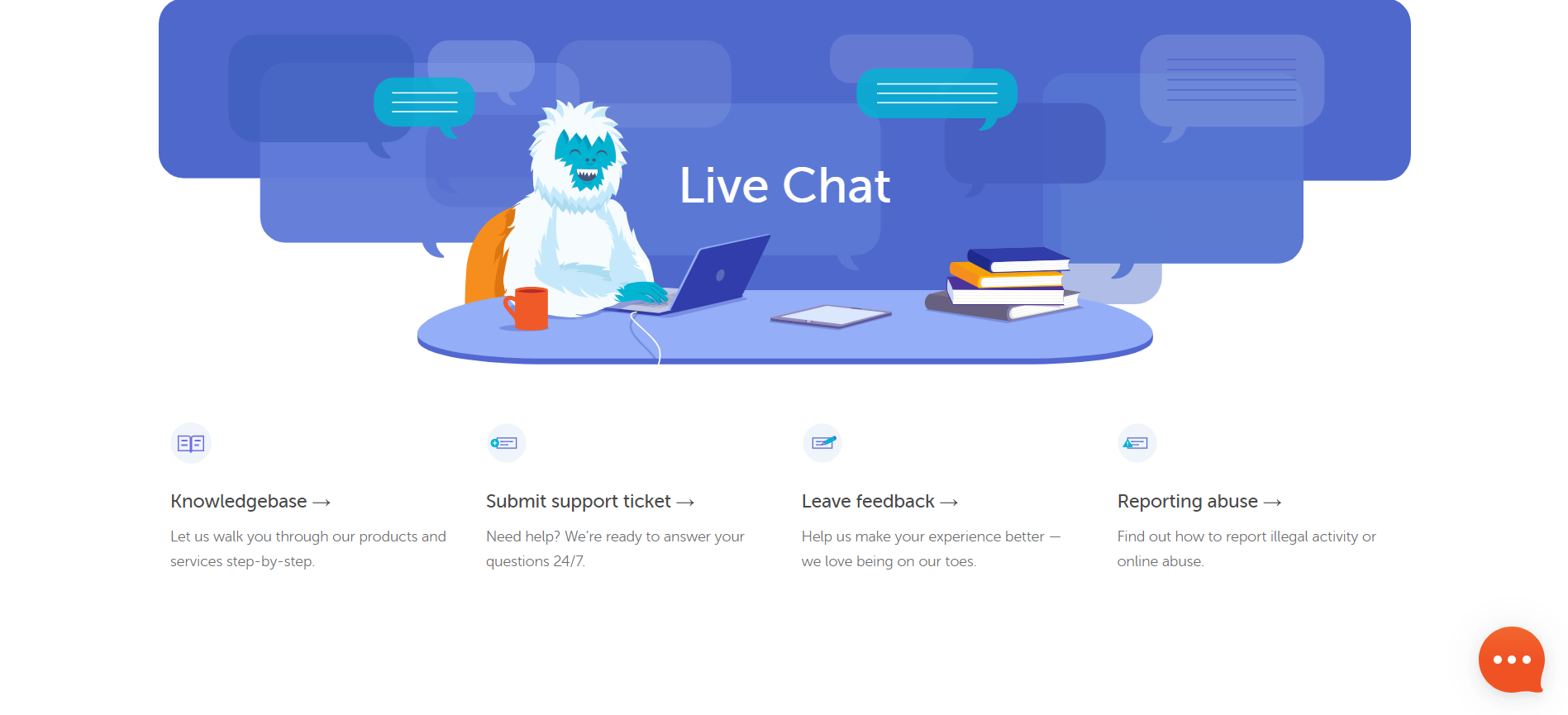
Namecheap provides 24/7 customer support through live chat and a ticketing system. The comprehensive Help Center features an extensive knowledge base, Guru Guides, blog, and how-to videos, which aim to allow users to resolve issues independently. However, Namecheap lacks phone support, which may be a drawback for customers who prefer verbal communication over online messaging.
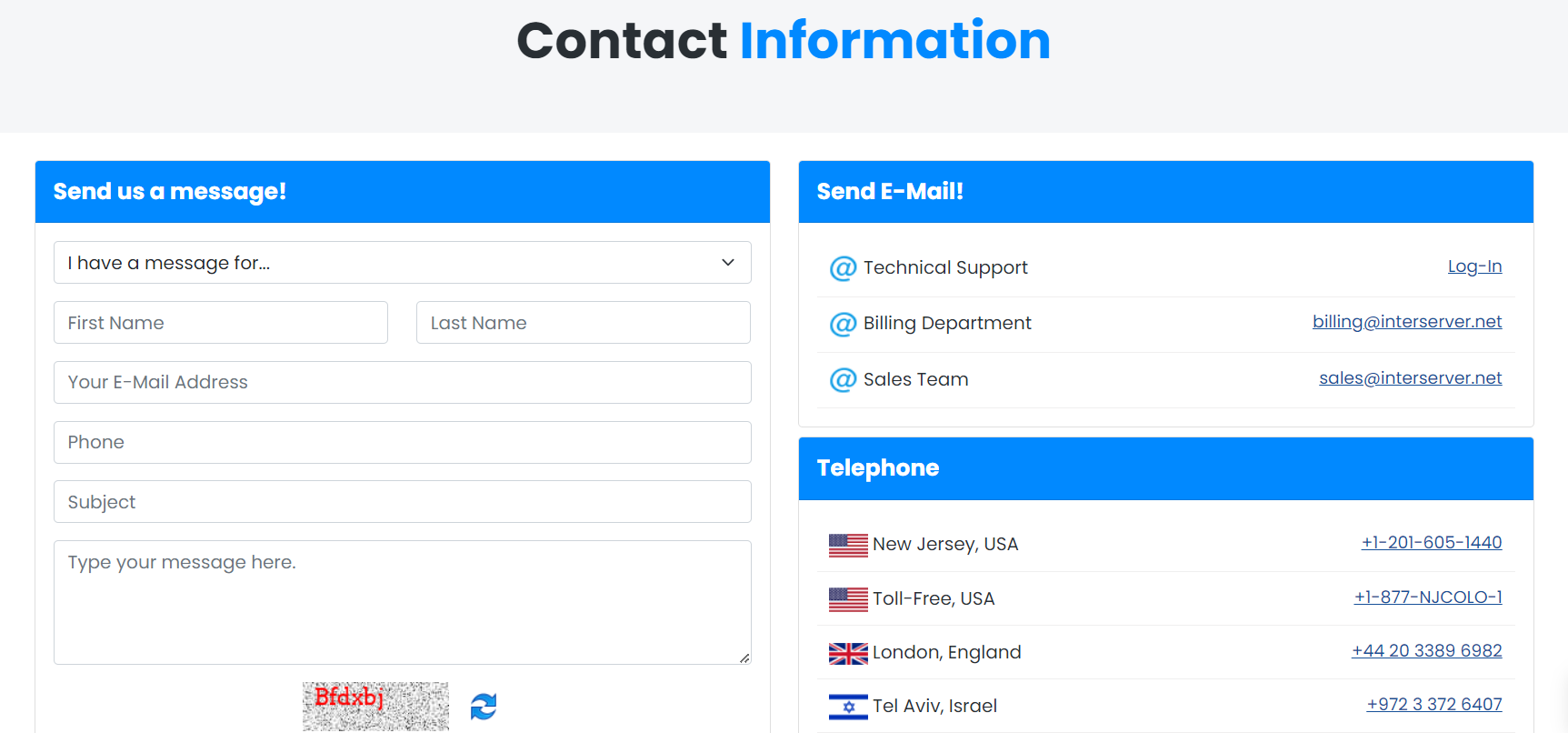
InterServer excels in customer support by offering 24/7 assistance via phone, live chat, and an efficient ticket system. The addition of phone support and varied control panels make it user-friendly for diverse technical needs. InterServer’s proactive and daily backup systems further enhance data security, while their knowledgeable on-site support team ensures timely issue resolution.
User feedback
Namecheap is widely appreciated for its affordability, reliability, and high-quality customer support. Users commend the availability of free SSL certificates, user-friendly cPanel, and outstanding hosting speed. However, shared hosting speed and the occasional slow response from support are noted concerns. Despite these minor drawbacks, Namecheap remains a popular choice for beginners and small to medium businesses due to its competitive pricing and satisfactory service quality.
User feedback on the hosting provider paints a mixed picture. Many users commend the provider for its affordable, straightforward pricing and extensive features like unlimited storage and bandwidth, free SSL certificates, and a user-friendly control panel. The customer support, while generally prompt and effective, has garnered both praise and criticism, especially due to the lack of a dedicated phone support line and sometimes long live chat wait times. However, performance issues such as inconsistent server speed, downtime, and occasional loss of data have been frequent points of frustration for users.
FAQ
Which platform is better suited for hosting WordPress websites?
Both Namecheap and InterServer are well-suited for hosting WordPress websites, offering comprehensive hosting plans with easy installers, backups, and updates. Namecheap provides a specialized EasyWP dashboard for managing WordPress sites, boosting usability. InterServer, on the other hand, ensures high performance through features like SSD Caching Servers and free migration services. Both are effectively tied in this category, making either a viable option for WordPress hosting.
Which hosting service offers better security features?
Namecheap and InterServer offer robust security features, though they excel in different areas. Namecheap provides a wide variety of SSL certificates, includes multi-layer email protection, and supports PHP versions up to 8.X with tools like eAccelerator and xCache for script optimization. InterServer features InterShield Security, which has a machine learning firewall, in-house malware database, and proactive server management. Both include two-factor authentication, but Namecheap’s broader range of SSL certificates gives it a slight edge.
What are the major differences in pricing and value between namecheap and interserver?
Namecheap generally has lower introductory prices compared to InterServer but comes with higher renewal costs, while InterServer offers fixed monthly pricing. Namecheap’s plans often include additional features like free domain registration for the first year and Supersonic CDN, adding extra value. InterServer focuses on providing unlimited storage and transfer across most plans, which could be advantageous for users with high data needs. Both hostings include SSL certificates and free migration, but Namecheap’s additional features and competitive pricing make it slightly more attractive.
Which platform offers better customer support?
InterServer outshines Namecheap in customer support by offering 24/7 assistance via phone, live chat, and an efficient ticket system. The inclusion of phone support gives InterServer an edge, especially for users who prefer verbal communication. Namecheap also provides 24/7 support through live chat and a ticket system, complemented by a comprehensive Help Center with extensive documentation. However, the lack of phone support in Namecheap may be a drawback for some users.
Which hosting service offers more scalability options for growing websites?
Both Namecheap and InterServer provide effective scalability solutions, though they cater to different needs. Namecheap’s VPS hosting allows for significant growth with options ranging from 2 to 8 CPU cores and substantial SSD storage, though specific pricing details are not mentioned. InterServer facilitates easy scaling to VPS or dedicated servers without downtime during upgrades and offers a flexible hosting platform designed to seamlessly accommodate growing website needs. The choice between them would depend on specific scalability requirements, but both are robust options for growing websites.
The making of this blog
We followed a clear, step-by-step process to write and research this article.









